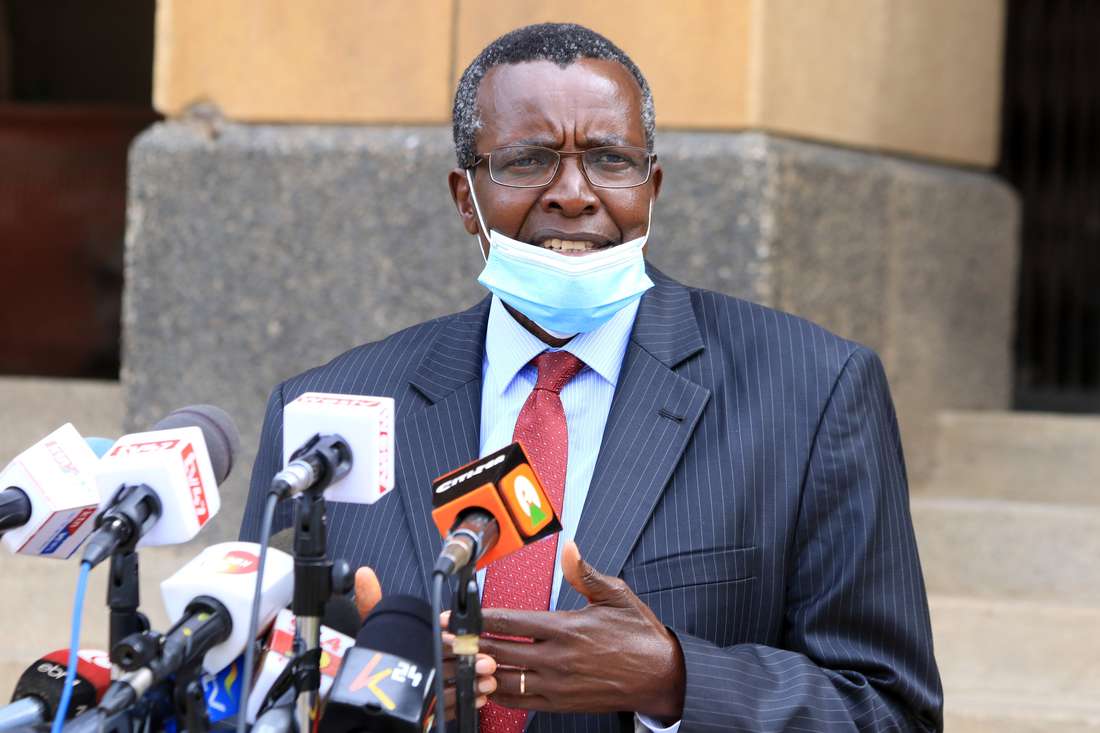President Uhuru Kenyatta’s executive order 1 of 2020 was met with resistance from the Judiciary and Law Society of Kenya (LSK).
Both Chief Justice David Maraga and LSK President Nelson Havi rejected the Executive Order independently.
The Executive Order not only placed government ministries and departments under the office of the president. It also altered the structure of government and also placed the office of the deputy president and the Nairobi Metropolitan Services (NMS) under Uhuru.
“Executive order no 1 of 2020 is unconstitutional in so far as it purports to place the Judiciary, commissions and other independent offices under the executive. Unless the executive order is rescinded within seven days the LSK will challenge it in court, as Uhuru has no such powers” part of the statement read.
Below is Maraga’s statement in Full text:
STATEMENT ON EXECUTIVE ORDER NO. 1 OF 2020
My attention has been drawn to Executive Order No. 1 of 2020 entitled “The Organization of Government” (particularly page 69 thereof) issued by the President on 11t May 2020.
The Order is, by its terms, issued under Article 132(3)(b) of the Constitution which authorizes the President of the Republic of Kenya to “direct and coordinate the functions of ministries and government departments.” Article132(3)(b) of the Constitution is in Chapter 9 of the
Constitution which creates the Executive Arm of Government. The Judiciary and the Judicial Service Commission are established under Chapter 10 of the Constitution. The Order cannot “restructure” or “assign” functions to the other co-equal and co-substantial arms of government and independent commissions. An Executive Order cannot “restructure” or “assign” functions to the Judiciary or the Chief Justice.
The manner in which the judiciary operates cannot be the subject of an Executive Order made pursuant to Article 132(3)(b) which empowers the President to: “direct and co-ordinate the functions of ministries and government departments.” The Judiciary is neither a ministry nor a | government department which can be “organised” by an Executive Order made pursuant to that provision.
Similarly, an Executive Order cannot “restructure” or “assign” functions to the Judicial Service Commission (JSC) or its Chairman. The Constitution directly creates the JSC and assigns its functions and powers in Articles 171-173 of the Constitution.
It is therefore obvious that the Order only applies to and is, indeed, only capable of applying to the Executive branch of government. I want to believe that this was an inadvertent error and that the office of the President will promptly issue a correction.
While the Executive Order has no legal effect as the Constitution is clear about the creation of the Judiciary and the JSC and their authority and functions, it is important that the public understands, for the sake of our constitutional democracy, that both the Judiciary and the JSC are independent organs which are neither assigned functions nor derive authority from the Executive branch of government. It is imperative that this institutional independence be made clear in all official government publications and orders.
This will serve to avoid confusion among members of the public as well as foster the constitutional letter and spirit of separation of powers. It will also avoid the unwitting undermining of the other independent arms of government and institutions.
Hon. David K Marage, EGH
Chief Justice and President
of the Supreme Court of Kenya
June 4, 2020




